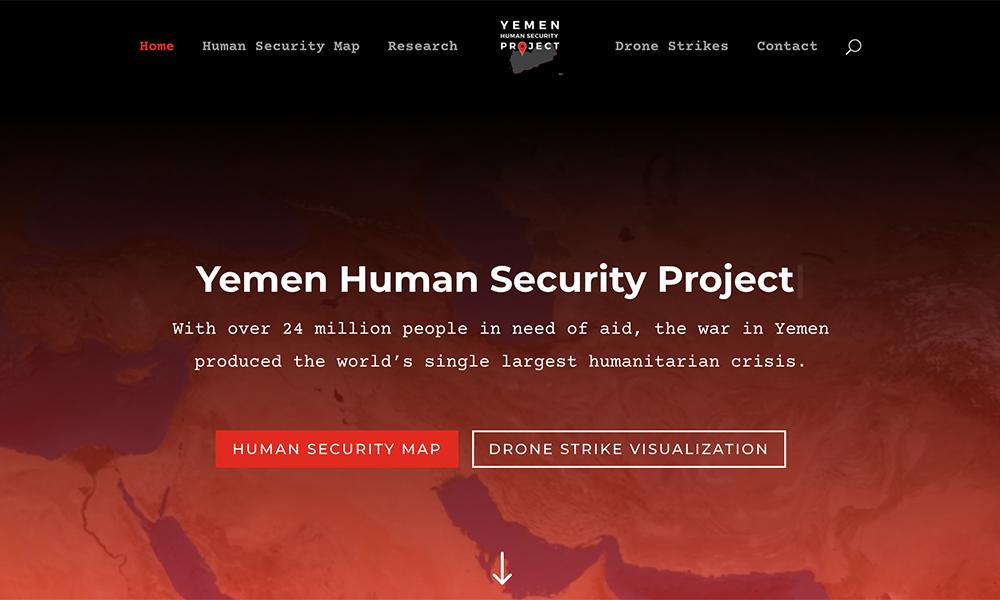Professor, students launch interactive map visualizing civilian death toll in Yemen
News
SUMMARY: Bernd Kaussler, professor of political science and recipient of the first Cinquegrana Presidential Chair of Faculty Teaching Excellence and Research award, has launched the Yemen Human Security Project, which was developed with the help of JMU students.
Bernd Kaussler, professor of political science at James Madison University, worked with two student research assistants and students in his “International Security and Conflict Management” class to launch the Yemen Human Security Map.
|
"It’s a terrible situation in Yemen, and I am hoping that this project can help shed some more light on the plight of [its] people, especially children." Dr. Bernd Kaussler, Professor of Political Science |
The map visualizes the civilian death toll of the Saudi-led 5-year air campaign and US drone attacks in Yemen. During the Spring 2021 semester, ten undergraduate students worked under the direction of alumnae Jamie Zeigler (’20), who majored in media arts and design, and Jenna Janson (’21), who majored in computer information systems, to geo-locate over 22,000 conflict events in Yemen and visualize them in an interactive map.
Kaussler anticipates the Yemen Human Security Map will be a good teaching tool not only for his future classes, but for other classes across campus. Drawing attention to drone attacks and civilian casualties in Yemen also has implications for human rights law and international humanitarian law. “It’s a terrible situation in Yemen, and I am hoping that this project can help shed some more light on the plight of [its] people, especially children. Over 80% of Yemen’s population – 24 million – are living in poverty and deprivation, with more than 12 million children in need of humanitarian assistance.” Kaussler notes that while “war by surrogate” may seem tempting to US policymakers as it provides a veneer of deniability, the humanitarian disaster that the war in Yemen brought about must serve as a reminder of the true cost of selling weapons to authoritarian governments.

“This project started off as a lot of research and data retrieval. We learned through trial and error the best ways to compile such a large data set,” Zeigler said. In designing the data visualization, Zeigler was able to apply the skills that she developed in her media arts and design courses. “Learning graphic design, print design, video editing and data visualization techniques aided in my ability to design this website.” Her role in the Yemen Human Security Project helped her land her current role as lab manager at the JMU X-Labs.
The experience of working on the map enabled Kathleen Brett, a history and political science double major, to participate directly in research and learn about U.S. foreign policy in the Middle East. “I gained a lot of knowledge working on the research for the Yemen Human Security Map,” Brett said. “I am grateful for the opportunity to collaborate with my classmates to create a better understanding of the crisis in Yemen.” International affairs major Derek Gilmore said, “Dr. Kaussler is very passionate about his research and working so closely with him has been a great privilege.”
Kaussler was the inaugural recipient of the Betty Coe (64) and Paul J. Cinquegrana Presidential Chair of Faculty Teaching Excellence and Research. Support from the award helped fund the development of the Yemen Human Security Map.
